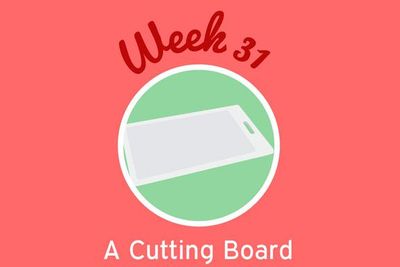At week 31 of pregnancy, your baby is roughly the length of a cutting board. Unlike a cutting board, your baby has arms and legs and flails about with the skill of a tiny gymnast. Your baby is pretty active right about now, and while somersaults and jabs to the ribs can be somewhat uncomfortable at times, they're also signs that all is well.
Tip of the week:
Unfortunately, when Braxton Hicks contractions occur, you just need to wait it out. You can do so in style and comfort by drawing yourself a warm bath and having a cup of herbal tea, which will simultaneously soothe your muscles and hydrate you.
Your baby isn't just getting his exercise, he's also becoming smarter by the day. At this point, he has trillions of brain connections and all five senses. Additionally, he's sleeping for long stretches of time, and you'll probably start to notice his resting patterns—just don't expect him to stick to them once he's out of the womb.
As your little one becomes not so little, you'll probably feel muscle contractions in your uterus, also known as Braxton Hicks contractions. These sometimes appear during the second trimester, but are more common during the third, and they last anywhere from 30 seconds to a couple of minutes.
If you mistake them for pre-labor contractions, you're not far off because they're essentially the result of your uterus preparing for childbirth. Use these opportunities to practice your breathing exercises and teach yourself how to relax through discomfort. But first and foremost, be aware of when they're just Braxton Hicks and when it may be time to head to the hospital.
Braxton Hicks contractions occur infrequently and are usually non-rhythmic and inconsistent in intensity. They tend to be more uncomfortable than painful and will eventually taper off and go away. Conversely, actual contractions get increasingly intense at regular intervals and, needless to say, don't disappear. If you're unsure of whether your contractions are false alarms or the real thing, don't hesitate to call your health care provider.
You may find that Braxton Hicks contractions occur when you or your little one are active, when someone touches your belly, when you need to use the bathroom, after sex or when you're dehydrated.


